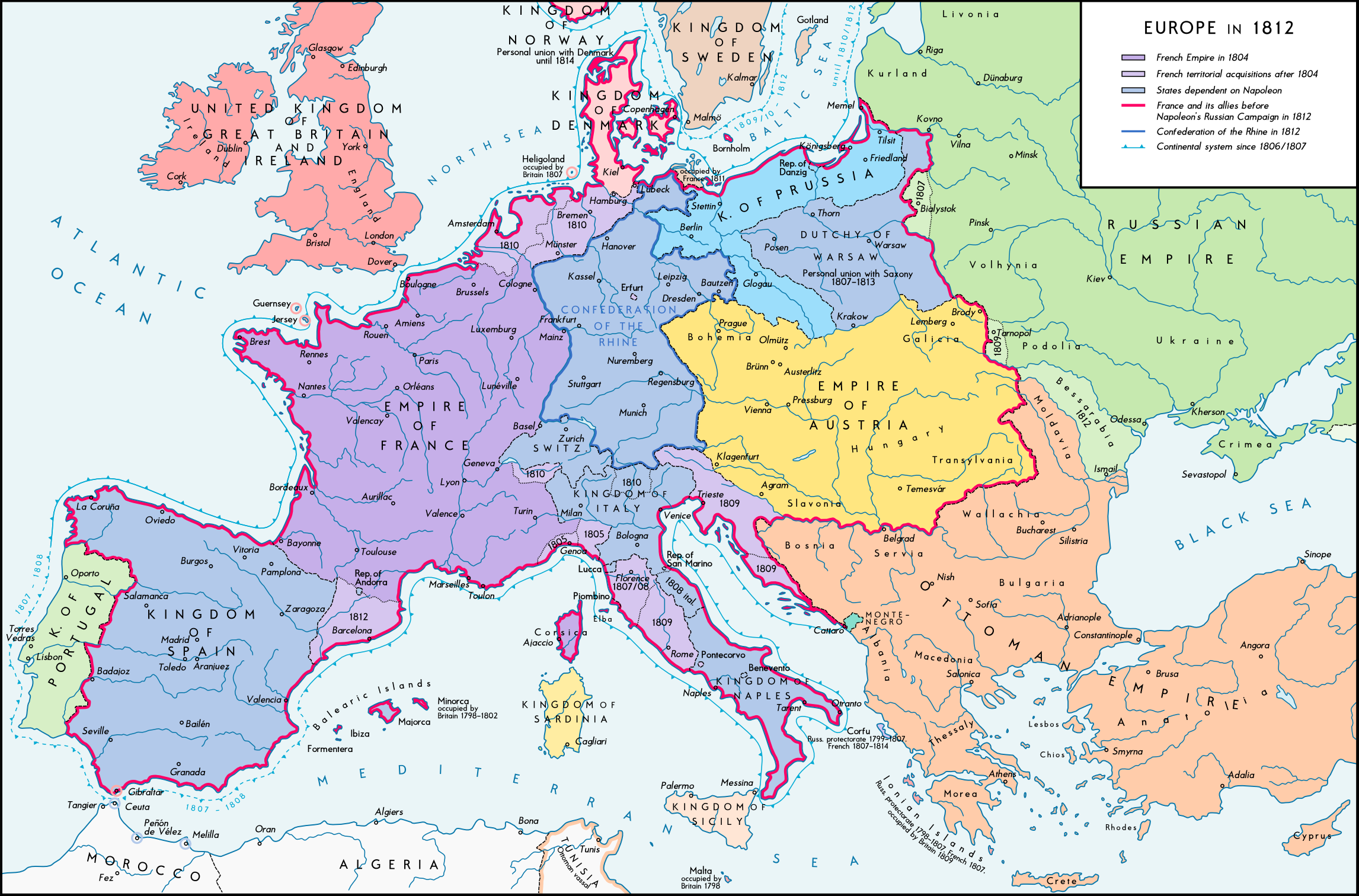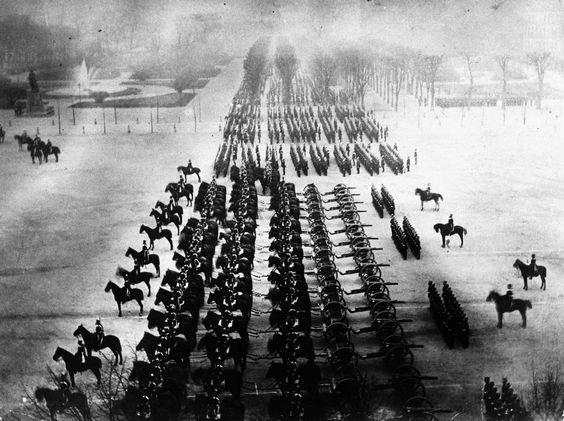At the risk of wandering into esoteric trivia, a note on great quotes run amuck:
I will begin with a request for group participation. My library is in some disarray from a major repair job. I have excavated my limit for today of book piles without locating my copy of Churchill's History of the Second World War. I am unable therefore to find the exact quote, but somewhere in his discussion of the fall of France in 1940, Churchill penned a great couple of lines, which is the sort of thing Churchill was in the habit of doing.
Bear with me. I think it's an important quote in terms both of the historiography and the popular imagination.
Churchill's subject was the collapse of the French will to fight in 1940. (War guilt had nothing to do with this discussion.) He was, of course, a romantic whose imagination was dominated by historical glories, especially Britain's, and the tragedy of the Great War. He was therefore sympathetic to France. He understood that France had been bled white in 1914-18 and had not recovered by 1940. But anyhow, his discussion included a great passage which I think went on to color a generation or more of historians. The quote ran something along the lines of: "Three times in the past hundred years, the streets of Paris had trembled beneath German boots, and echoed to the thunder of German guns." Good stuff. But what he was specifically discussing was not 1940 per se; it was the demoralization of France in the interwar years, including the 1930's, culminating in the collapse of 1940.
Anyhow: as a product of the post-WWII generation, one of the comments that I regularly encountered, and just as regularly disputed, was the assertion that "Germany has invaded France three times in the last century." People who said this invariably had 1940 in mind, with a dim notion about WWI and not a glimmer of an idea about the third German "invasion." When I eventually read Churchill's book, the proverbial lightbulb went off in my mind: "Aha! So that's where that comes from!" And I think that's right. A great passage seeped into the minds of a whole generation of English speaking people, and it went viral in a pre-internet sort of way. In the wake of WWII, "the Germans are in the habit of invading France" became common knowledge, even if not true.
A first problem is that since Churchill was discussing French demoralization after WWI, the three episodes of trembling streets and booming guns to which he referred did not include the 1940 campaign, which is the sole indisputable example of unprovoked German aggression against France. (Well ... one could count the barbarian crossing of the Rhine in A.D. 400, but let's not go back that far.) So: to what was Churchill referring?
This is where the exact quote would be useful if someone can lay their hands on it. The 100 year time frame is important in the context of the quote. Paris did indeed hear the boom of German guns in 1914 (and again in 1918), though the only German boots tramping the streets in that war would have been POW's. But let's give Churchill poetic license and take 1914 as one example. Take 1870-71 as another; Paris was besieged and ultimately taken by the Germans. But in 1870, France had declared war against Germany; it may be that Louis Napoleon was indeed as big a fool as advertised and that a wily Bismarck had baited him, but war guild can certainly be debated; bottom line: it was the French who declared war, even if they didn't prosecute it very well.
Finally, 100 years runs us back to 1814-15 and the conclusion of the Napoleonic Wars. Paris did indeed tremble beneath Prussian (and Austrian, British, Russian and allied German) boots in 1814, but I don't think anyone would regard the final allied suppression of Napoleon as a German invasion of France. (And Churchill didn't say it was; he merely noted in poetic terms that France had faced catastrophic defeat.) That particular war actually began in 1812 with Napoleon's invasion of Russia; 1812 saw the destruction of the Grand Armee in Russia; the campaign of 1813 was the liberation of Germany; and 1814 merely settled the thing, with Waterloo as a brief aftermath.
This gives us five campaigns within the time frame of Churchill's passage: 1814, 1815, 1870-71, 1914 and 1918. To which five, exactly, was he referring? Here we need the exact quote, but for discussion purposes I'll say 1814, 1870-71, and 1914. And what I think happened, in the wake of WWII, was that Churchill's wonderful wording got compacted into three German invasions of France in a hundred years.
Yes, 1940 was a German invasion of France, but Churchill wasn't including that. 1914 is arguable; I think the best assessment is that all of the European powers had grown complacent about war and that Wilhelmine Germany -- newly united and flexing its muscles -- and revanchist France -- eager to recover Alsace-Lorraine and erase the stain of 1870-71 -- were especially spoiling for a fight. Any of the Great Powers could probably have stopped the slide into war, but all of them were determined to honor their alliances. It becomes a very complicated argument.
The larger point, however, is that France -- the historic bully of early modern Western Europe -- learned in 1814-1940 that the tables had turned. France became defeatist once the French realized that Germany had supplanted it as the key power in Europe. Germany got taught its own lessons a bit later. The British also have endured a long comedown with the slow dissolution of the empire, but that was a different dynamic since it involved mostly voluntary withdrawal rather than battlefield defeat.
The above is, again, perhaps esoteric trivia, but as the WWII generation disappears, some balance does need to come back into the discussion. I'll not quarrel with (almost) anything for which one wants to condemn Germany in WWII. But the rest of the record is much more complex. France historically had viewed the various German principalities as targets of opportunity, while none of the German states, except for Austria and on rare occasions Prussia, were rash enough to even consider challenging France. That changed after German unification, but it took the French some time to catch on to the new reality, which is why 1870 and 1914 can be debated.
sphinx paraphrasing Churchill:
"Three times in the past hundred years, the streets of Paris had trembled beneath German boots, and echoed to the thunder of German guns." As you said, the exact quote would be worth studying.
German troops did parade though Paris in 1871, but not in the First World War, ever.
And it's hard to imagine Churchill referring here to Napoleonic wars when the Prussians & Brits were allied!
But we can make your paraphrase of Churchill accurate simply by changing the word "and" to "or".
Then it could simply refer to the First World War, as you noted, in 1914 and 1918.
In 1812 the French were unquestionably the Big Dogs in Europe and by 1942 had been unquestionably replaced by Germans.
Between those dates the issue was not fully settled, and German aggression was met with stiff French resistance:
Napoleon's Empire, 1812:

Germans parade in Paris, 1871:

Hitler's Empire, 1942:



